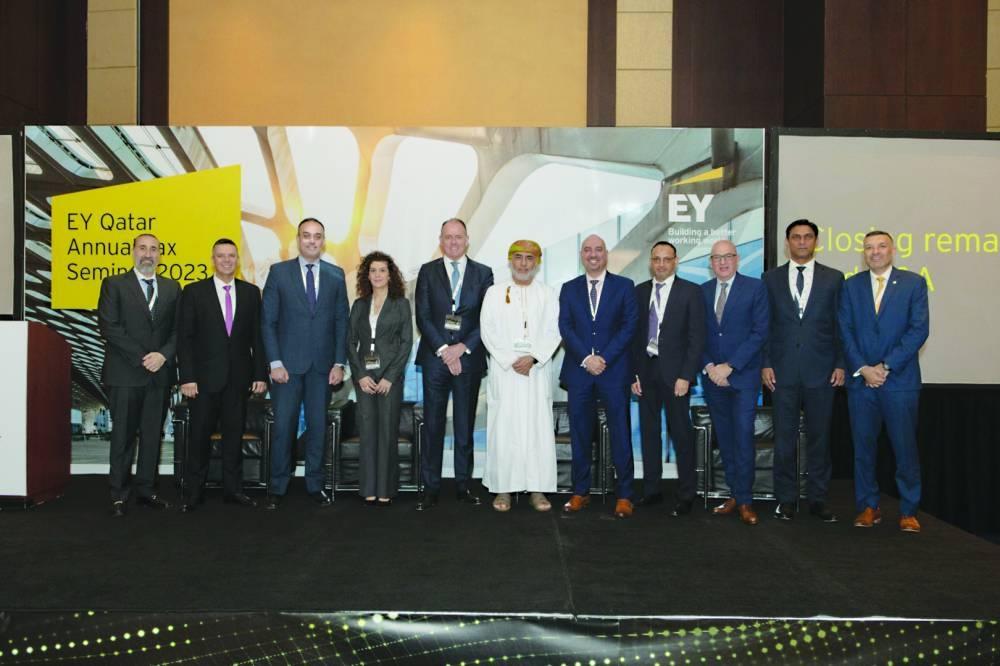(MENAFN- Gulf Times) EY kicked off the New Year by organising a tax seminar aimed at preparing Qatar's companies for the recent global, regional, and local tax developments.
The event provided all relevant updates on the country's tax landscape, tax policies, base erosion and profit shifting (BEPS 2.0) Pillar 2, and recent tax trends across the Mena region with a focus on the GCC, as well as customs and global trade.
Ahmed Eldessouky, EY Kuwait, Qatar and Oman Tax leader, said,“Qatar's tax authorities have put in place a robust plan to modernise their technology and build the relevant capacities of both Qatari businesses and international businesses working in the country.
“With the support of the General Tax Authority (GTA), taxpayers will need to ensure that they remain on top of their compliance, keep it rigorous and timely, and make certain they take advantage of the measures and exceptions that the government puts in place.”
The seminar saw the participation over 150 C-suite executives and finance professionals from local and multinational companies across several industries. The event explored various challenges faced by Qatar's taxpayers, including communication instructions with the GTA, technical solutions for the new 'Dhareeba' tax portal, and understanding the need for transparency and readiness.
The facilitators also reviewed recent assessments issued by GTA, examined taxpayers' obligations, and discussed potential tax violations and corresponding penalties.
Tax Administration 3.0 is well underway and will have a direct impact on businesses across the Mena region. Therefore, companies must prepare for an increasingly digitised tax environment, requiring accurate, often transaction-level data, and advanced digital capabilities.
With the UAE gearing up to introduce Corporate Income Tax (CT) in June 2023, and Oman poised to implement personal income tax in 2024, companies in the region should closely monitor the tax policy landscape for a potential shift from fee-based revenue structures to tax-based ones.
This will help them anticipate and understand legislative developments, assess their implications, and identify business opportunities. The next steps should involve bolstering tax functions, streamlining systems and accounting practices, assessing the implications of new taxation models on competitiveness, and modifying operating models and trade routes accordingly.
The ongoing tax reforms are driven mainly by economic recovery efforts, revenue diversification away from hydrocarbons, and alignment with regional and international commitments.
These include the BEPS project by the Organisation for Economic Co-operation and Development (OECD), which intends to ensure that multinational enterprises pay a fair share of tax wherever they operate.
Saudi Arabia, UAE, Oman, Qatar, and Bahrain have joined the Inclusive Framework (IF) on BEPS.
Moreover, Mena governments are showing increasing interest in ESG as part of their strategy frameworks. If they have not already done so, companies in the region should start looking into integrating ESG in management practices, reducing their carbon footprints, and assessing opportunities and the potential impacts on the cost of doing business.
MENAFN02022023000067011011ID1105516687
Legal Disclaimer:
MENAFN provides the
information “as is” without warranty of any kind. We do not accept
any responsibility or liability for the accuracy, content, images,
videos, licenses, completeness, legality, or reliability of the information
contained in this article. If you have any complaints or copyright
issues related to this article, kindly contact the provider above.





















Comments
No comment